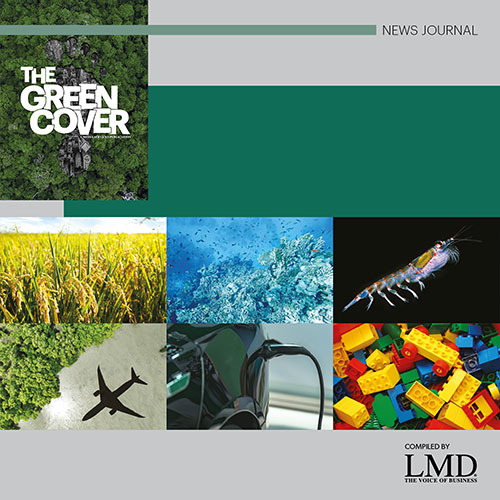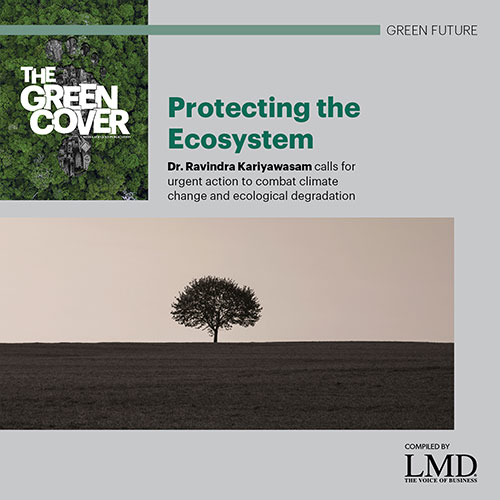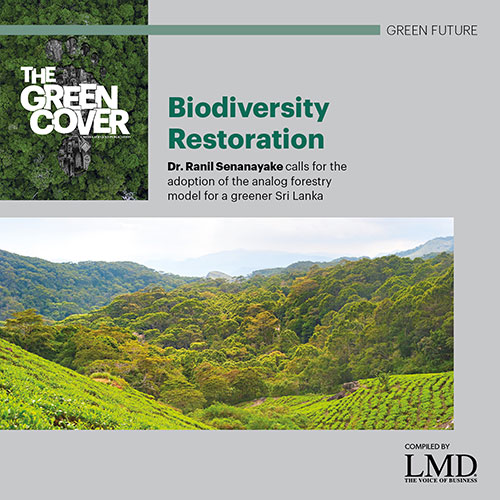GREEN FUTURE
Sustainability over Profit
Melani Gunathilaka pushes for climate resilience, community empowerment and systemic accountability
Climate change is intensifying extreme weather events in Sri Lanka with frequent droughts, floods, landslides and cyclones. Melani Gunathilaka warns: “Unpredictable weather patterns, soil degradation and prolonged droughts threaten agriculture, compromise food security and livelihoods, and increase water scarcity.”
Coastal areas face rising sea levels, erosion, plastic pollution and saltwater intrusion that destroy homes and habitats. She notes: “Traditional fishing communities are especially vulnerable with their way of life being severely affected by habitat degradation and inadequate policies.”
Gunathilaka stresses the urgency of prioritising people, planet and sovereignty over profit: “The GDP driven model ignores the suffering of communities facing climate threats and only focusses on macro-level economic indicators,” she says.
Climate justice demands that polluting industries are held accountable, strict regulations are enforced, and traditional knowledge and sustainable practices are supported. National development plans must prioritise food and energy sovereignty while reducing indebtedness and avoiding neocolonial financial traps.
Education is key to fostering a climate resilient mindset. However, current efforts are largely top-down and one-way, and led by experts, government agencies, NGOs and private corporations.
“Climate education and disaster preparedness should be integrated into school curriculums, and must focus on integrating local knowledge systems that are crucial for context specific solutions,” she states.
Though Sri Lanka’s diverse ecosystems and communities require tailored approaches, current models overlook the insights of those who regularly interact with these environments. Moreover, private corporations often promote narratives that shift the blame to consumers while ignoring their own environmental responsibilities.
Gunathilaka asserts: “Genuine climate education should also address systemic accountability and inclusive learning to promote market and tech solutions.”
A meaningful two-way education process where experts and communities exchange knowledge will empower locals and enhances resilience. “Effective climate education in Sri Lanka must prioritise equity, ecological preservation and community empowerment, and ensure that all voices are heard and respected,” she emphasises.
Technology and data driven solutions can enhance climate forecasting and disaster response by improving early warning systems, real-time monitoring and predictive modelling.
However, natural studies often face data limitations especially in rapidly changing ecosystems. Gunathilaka says: “Since all aspects of local environments can’t be quantified, incomplete data can result in flawed long-term decisions. Integrating local knowledge with technology will enable more accurate, context sensitive forecasting.”
She concludes: “Effective solutions must recognise that there are limits to data collection, value qualitative insights and ensure community involvement in decision-making processes for resilience and adaptation.”
Melani Gunathilaka
Cofounder
Climate Action Now Sri Lanka








